
Posted on 09/08/2008 5:31:39 AM PDT by Homer_J_Simpson

Sudeten German leaders abruptly broke off negotiations with the Czechoslovak Government yesterday giving as their reason an incident in the Czech border town of Maehrisch-Ostrau in which a Henleinist Parliament Deputy allegedly was struck by a policeman’s riding crop. A Henleinist communiqué said the party had been prepared to negotiate on the government’s latest proposal. Although Premier Hodza promised a full investigation of the incident, the Sudeten Germans refused further parleys until the affair was cleared up [Page 1.]
Details of Czech’s new proposals to the Henleinists were disclosed in Prague. [Page 10.]
Konrad Henlein himself had an interview with Chancellor Hitler in Nuremberg and, though ill with a cold, hastened back to Czechoslovakia. Hitler gave no sign of his attitude, but told the French Ambassador “I trust no mother will have cause to weep in consequence of any action of mine.” Nevertheless the German attitude seemed to be hardening. The Chancellor was believed preparing to talk directly with the British. [Page 1.]
French labor, as represented by its big confederation, rallied behind Premier Daladier in the period of tension by agreeing to modification of the forty-hour week. The country had 1,200,000 men ready for military service, it was estimated. [Page 1.]
In London the uncertainty of British policy in 1914 seemed to be repeating itself, as officials wondered whether a more pointed warning should be given to Hitler. Such a course was demanded by British labor at the Blackpool Trades Union Congress. [Page 1.]
Details of the incident conflict, but the latest version presented by the Henleinists declares that during a demonstration outside the Maehrisch-Ostrau prison this morning a mounted policeman rode up to Karl May, a Henleinist Deputy, and struck him in the shoulder with a riding crop.
Henleinist leaders declared tonight that they had been ready to negotiate with the government on the basis of their latest proposals, but that the new incident made this impossible. They communicated their decision to Premier Milan Hodza and Viscount Runciman, unofficial British mediator.
A deputation headed by Karl H. Frank, Herr Henlein’s aggressive deputy leader, received from the Premier a promise of a fullest investigation of the incident. The delegates informed him that the government’s proposals would receive no further consideration until the incident had been satisfactorily cleared up.
In its communiqué tonight the Henleinist party said that the government clearly “does not control the situation sufficiently to begin discussions in detail in the present circumstances.” The statement asserted that today’s incident had been in such strong contradiction to the spirit of the government’s plan that it was apparent that “deeds count more than words.”
Results of the government’s investigation are to be ready tomorrow for the Sudeten party’s inspection. Hence, theoretically, discussion might be resumed then. In political quarters, however, it is believed that in issuing reports of this
and other incidents today, the Henleinists were seeking only to evade further discussion of the government’s proposals until Chancellor Hitler’s main speech at the Nazi party congress in Nuremberg, Germany, and that unless Lord Runciman can exert pressure in the opposite direction by tomorrow they will have found some fresh excuses for abstaining.
The whole incident that was made the basis for suspension of negotiations began and ended within twenty-five minutes.
The first version that Henleinist leaders communicated to the newspapers unofficially was that a Henleinist Deputy had been shot and killed by a Czech policeman. This was eventually corrected to allegations that Henleinist Deputies, women and children had been lashed by policemen with whips. The present version was issued some time later.
Police reports say that the Henlein party formed a deputation this morning and organized a demonstration of 200 to 300 Henleinists outside the Maehrisch-Ostrau prison to demand the release of 140 Germans arrested last month on charges of espionage and smuggling arms from Germany. Some of these arrests for smuggling arms were reported at the time.
It may strike the neutral observer as curious that just today, when such important negotiations were beginning in Prague, the Henleinists should have organized this demonstration in favor of men who had been under arrest for several weeks, should have organized in Troppau another demonstration - by women – concerning the minor question of a German school for the village of Hultschin and should have at the same time launched in sensational form the story of the suicide of a Henleinist official charged with espionage while serving with the armed forces, which occurred three days ago.
Maehrisch-Ostrau is a town with 80 per cent Czech and 20 per cent German inhabitants. Evidence of the deliberate organization of the demonstration is furnished by the director of the local high school, Herr Holz, a German, who admits he was called up at 10:25 this morning by Henleinists and told to release students immediately so they could join the demonstration.
Four Henlein Deputies, accompanied by 200 demonstrators, went to the police prison at 10:45 and the four Deputies interviewed the police chief, demanding an early disposal of the cases and the prisoners’ release. As soon as the four went in, the Germans outside gave the Hitler salute and began the Nazi chant, “Sieg Heil!”
A crowd of 200 Czechs gathered and four mounted and six foot policemen were sent to separate the Germans and Czechs. This was effected without resistance and without the use of clubs or any other violence, the police reports say.
But when the Deputies inside heard the victorious choruses they rushed out to join, and Herr May, according to independent witnesses, fought with a Czech civilian. When a mounted policeman tried to separate them Herr May took hold of the horse’s bridle.
To prevent this interference the policeman, ignorant of the fact that Herr May was a parliamentarian, hit the Deputy’s shoulder, doing no damage.
Six persons were detained for identification and released. The incident was over.
But then a storm of telegrams and protests set in that ended in the dramatic step of the Henleinist delegation in Prague this evening.
Another Henlein communiqué presents a heart-rending picture of weeping mothers of the village of Hultschin repeating with their children demonstrations in the neighboring town of Troppau for the German school to be immediately established in their village, and being brutally scattered by policemen armed with clubs.
According to the official version, there were neither children nor clubs, but a few score women Henleinists were brought out to demonstrate and dispersed peacefully when called on to do so. Subsequently the names of five women who had started trouble in a side street were taken and one who became violent was detained.
When the police saw the Henleinists taking another woman to party headquarters, and learned that the Henleinists were preparing to charge that her hand had been injured, the police rushed a surgeon to her and established that nothing had happened.
Together with these communiqués the Henleinists announced what was described as a “mysterious suicide.” The case concerns Alfred Knoll of Hangenstein, whose father received a telegram Monday in the Maehrisch-Ostrau hospital while doing military service.
The Henlein communiqué says the father was told that his son had been sentenced to twenty years’ imprisonment for espionage and had committed suicide by jumping from the train taking him to prison. The party statement said the doctor who had attended Knoll had declared he had a fractured skull but no other injuries.
The military authorities denied Knoll had been sentenced. They said he was being taken on a train to Maehrisch-Ostrau prison on charges connected with arms smuggling and espionage. During the trip he asked permission to visit the washroom and seized the opportunity to leap from the train, receiving fatal injuries.
The Henleinists are demanding further investigation.
Two further cases of violation of the Czech frontier by German planes were reported today. On Monday afternoon a German plane flew over Czechoslovak territory in the direction of Oberhald and returned to Germany.
This morning at 9 o’clock a group of five military planes in formation flew over Czech territory in the direction of Spitzberg. The swastika emblem was clearly visible.
Rudolph Bechyne, the Czech Social Democratic Minister for Railways – one of those giving reluctant consent to the new proposals to the Henleinists – said tonight that the government could not advance “one single millimeter further.”
Protest telegrams and resolutions from Czech and German Democratic minorities in the frontier districts continued to rain in on President Eduard Benes and Premier Hodza today.
This writer learns that the heavy British diplomatic pressure that was applied unceasingly on Dr. Benes from Saturday to Monday was largely based on a report received from Sir Nevile Henderson, British Ambassador in Berlin, to the effect that unless the Henleinists’ eight-point Karlsbad program was accepted before Hitler’s speech at Nuremberg, the Chancellor was going to announce that a plebiscite would have to be held in the Sudeten areas and that he was going to take measures for its supervision.
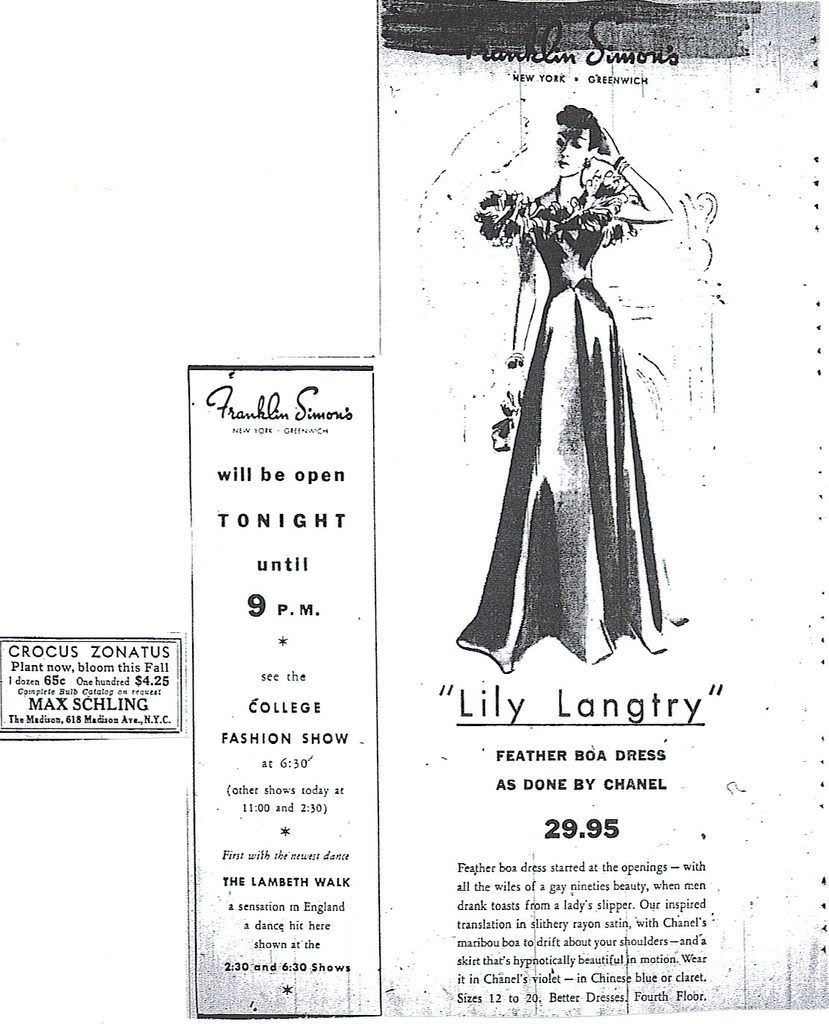
The Sudeten German delegates charged with negotiations this afternoon proceeded to examine proposals handed over to Deputy [Ernst] Kundt.
The latter and Dr. Rosche reported fully on their conversation with the Prime Minister, to whom they had handed a protest of the party against premature publication of the proposals before they had been brought to the knowledge of the Sudeten party.
It was decided to continue to negotiate with the government on the basis of these proposals with a view to realization of the Karlsbad eight points.
At this moment during the discussions a report was received from Maehrisch-Ostrau which spoke of unexampled excesses of the state police and the beating of Sudeten Deputies by police.
The delegates thereupon decided to break off their discussions and to inform the Prime Minister they felt compelled, owing to the incident at Maehrisch-Ostrau, to interrupt negotiations.
The proposals of the government must produce in the Sudeten German population the impression they are meant in earnest by the government with regard to the execution even of individual points.
The incident at Maehrisch-Ostrau demonstrates the government does not control the situation sufficiently to begin discussion in detail in the present circumstances.
Proceedings of the State police at Maehrisch-Ostrau are in direct contradiction to the proposals of the government in their second plan [the government described today’s proposals as the fourth set of concessions], and it is obvious that deeds count more than words.
The delegation has informed the President of the republic of this new situation and also Lord Runciman [British mediator], by whom the delegation, led by Deputy [Karl Hermann] Frank, was received at 5 o’clock.
The [Sudeten German] delegates informed the Prime Minister of their decision to continue negotiations until the incidents at
Maehrisch-Ostrau had been liquidated.
They were informed by the Prime Minister that orders had been issued for an inquiry to open immediately and that the Minister of Justice already had the matter in hand.
He said that there would be a strict investigation and that the guilty would be punished. At the same time other measures, he said, would be taken with a view to preventing any recurrence.
The Sudeten delegates replied that they would reconsider the situation tomorrow in the light of the Prime Minister’s declaration.
He had been abed in the Grand Hotel with a cold most of the day, but in the afternoon after the annual Labor Service parade Hitler sent for him. Their interview at the Deutscher Hof, where the Fuehrer stays, was brief and at its close Herr Henlein went back to his own hotel, packed his grip and departed with his adjutant.
Undoubtedly he is needed in his own territory. His interview with Hitler followed the receipt of news of a fresh incident in Czechoslovakia involving an alleged police attack on at least one of a group of Sudeten German Deputies inspecting the condition of Sudeten Germans in jail at Maehrisch-Ostrau, near the German and Polish borders, and the suspension of negotiations by the Sudeten Germans until the incident has been satisfactorily adjusted.
There is no outward sign, however, that the news has changed Hitler’s attitude. Indeed, nobody is quite sure what that attitude is. Ostensibly it is wholly pacific.
The Fuehrer received the diplomatic corps at a tea this afternoon after his talk with Herr Henlein, and at this tea Andre Francois-Poncet, the French Ambassador, gently rallied him about Nazi truculence. The Ambassador smilingly expressed the hope that although the democracies were usually treated pretty roughly in the speeches at the Nuremberg party congress their representatives were welcomed here.
Hitler met the jest smilingly, assuring M. Francois-Poncet that the democratic Ambassadors were welcome and expressing the hope that they would always be. Then he became serious.
“I trust,” said the Fuehrer, “that no mother will ever have cause to weep in consequence of any action of mine.”
Despite all this there seems to be no doubt that the German attitude in the Czechoslovak dispute is hardening. In fact, the only result of the fresh concessions in the negotiations visible here seem to be that the Germans are more likely to insist upon the full Sudeten German demands in the matter of autonomy and the separation of Czechoslovakia from her present allies than to accept any compromise.
Catch phrases being a strong asset in National Socialist argument, there is much talk here about the need of a “German Monroe Doctrine” in Central Europe.
Few Germans understand exactly what the Monroe Doctrine is. Their idea of its application to Central Europe seems to be that no State bordering on the Reich should be permitted to have close relations with any other State than Germany, which then would be in a position to dictate their attitude to the world at large.
Among minor Nazi leaders the latest news from Prague has been received with distaste. However, it is not the minor leaders but the supreme leader alone who will decide Germany’s course and pull the strings of the Sudeten action in the present crisis. No one knows – and least of all do the diplomats who came here today by special train know – just what Hitler thinks, for he makes few confidences.
But if it were left to a party decision there would not be much hope for Czechoslovakia. Under the spur of the continuous press campaign Nazi anger is rising.
“If these Czechs keep on beating up decent Germans,” said one major functionary in a conversation today, “it is getting to be time that
we hit them a real one where they will feel it.”
Most of the diplomats will leave Nuremberg tomorrow. United States Ambassador Hugh R. Wilson, after witnessing the Labor Service demonstration, which greatly impressed him, departed tonight. The sole exception in the general exodus is Sir Nevile Henderson, the British ambassador, who has let it be known that he will remain here a few days longer.
The Fuehrer made the move in exasperation over what he charges are dilatory tactics on the part of the Czechoslovak Government in its negotiations with the Sudeten German minority and over the government’s failure to prevent further incidents in the German border regions.
At the same time he sent Konrad Henlein, leader of the Sudeten Germans, back to Czechoslovakia for a personal investigation of today’s incident at Maehrisch-Ostrau, over which the Sudeten German-Czechoslovak negotiations were broken off.
Herr Henlein, who had just arrived at the Nazi party congress here yesterday, was ordered to return in a few days. He did not give up his hotel room.
Hitler now will deal more intensively with Britain in an effort to convince her that the Czechoslovak Government is not the master of the situation in its own State. He contends that the Sudeten Germans cannot be expected to owe loyalty to such a State.
The Fuehrer, according to informed sources, was so enraged at the news of the Maehrisch-Ostrau attack that he ordered the Sudeten Germans to beak off all negotiations with the Czechoslovak Government.
The news came shortly after a high government spokesman had reported that Hitler in effect previously had told Henlein concerning Prague’s latest offer of concessions:
“Don’t accept – ask for more and you’ll get it.”
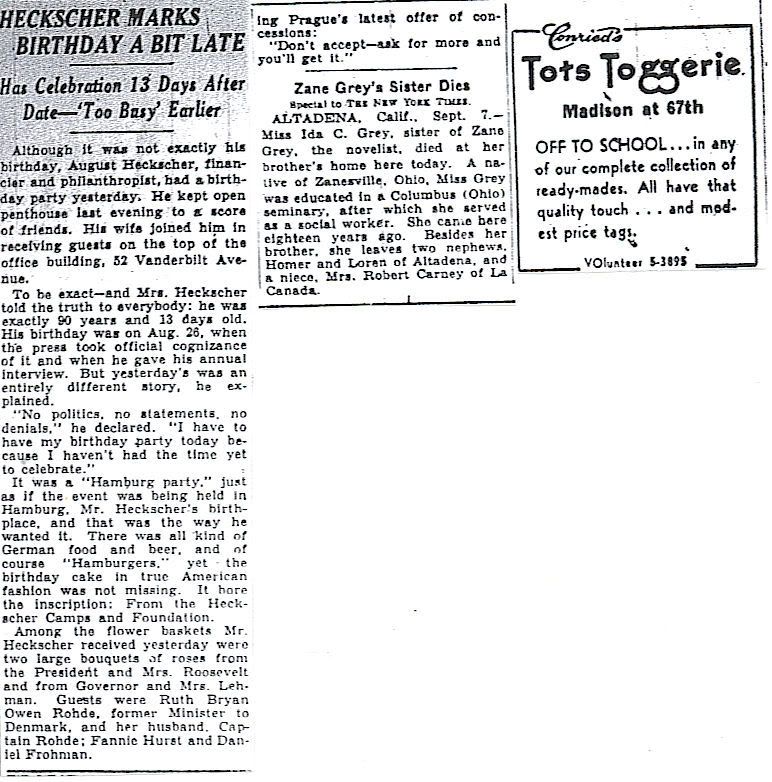
Prime Minister Neville Chamberlain and Sir John Simon, Chancellor of the Exchequer, decided to hurry back from the country to discuss the situation tomorrow with Viscount Halifax, Foreign Secretary.
Lord Halifax has virtually abandoned his plan to go to Geneva for the meeting of the League of Nations Council Friday, and other Cabinet Ministers are remaining in or near London until after Chancellor Adolf Hitler has spoken at Nuremberg Monday.
When the Prime Minister arrives at 10 Downing Street in the morning he will find that the confusion is almost as thick in London as in Prague.
The British now know they have failed utterly to make Germany believe their repeated warnings against going to war. Hitler and his advisors apparently believe Britain will not fight if they invade Czechoslovakia – and there has been enough wavering of opinion here in the past few days to justify the Germans in their belief.
Now, with Hitler’s momentous speech at Nuremberg only five days off, the British wonder whether they should make a new effort to remove such an impression from German minds. The effort may have begun tonight, in fact, by an editorial in The Times of London, believed to have been inspired directly by Lord Halifax, warning the Germans that they will have the world against them if they send their army across the Czechoslovak frontier.
But there were newspaper warning in 1914, yet the Kaiser did not believe the British would intervene. The analogy becomes more striking every day. Less than a fortnight ago Sir John Simon refused to pledge British help to the Czechoslovaks, but said a German attack might drag Britain into another World War.
This was just as true but just as vague as Sir Edward Grey’s warning on July 25, 1914, that although public opinion would not sanction going to war for Serbia “we may be drawn into it by the development of other issues.” Events turned Grey’s “may” into a fact before another fortnight had passed.
Between Sir John’s word “might” in his speech in Scotland the other day and the decisive word “will” there is an immense No-Man’s-Land of doubt, through which the Ger-
mans may yet drive to strategic and economic domination of the Czechoslovak State. The necessity of removing this doubt will confront the British Government with serious decisions in the next few weeks or even days.
A clear call for a decisive stand came tonight from the entire labor movement as represented in the emergency meeting at Blackpool, which issued a manifesto demanding the immediate summoning of Parliament to consider the international situation. Represented at the meeting were leaders of the industrial and political wings of the labor movement, including the Trade Union Congress, Parliamentary Labor party and the national executive of the Labor party.
“The British Government must leave no doubt in the mind of the German Government that it would unite with the French and Soviet Governments to resist any attack upon Czechoslovakia,” said the manifesto.
“British labor has no quarrel with the German people and reminds them that in some of the darkest hours of their history it stood firmly for a policy of generous understanding toward them. It cannot believe that great people will again allow their government to drive them into enmity with the world.”
After reminding the Germans that France and Russia were bound to support Czechoslovakia, that British interests made it impossible for this country to stand aside and that “the United States with all its great moral influence has made it clear it cannot remain indifferent to a potential world conflict,” the manifesto concluded:
“Labor cannot acquiesce in the destruction of the rule of law by savage aggression. We, therefore, demand the immediate summoning of Parliament. It is in that historic assembly of our democratic State that these principles should be reaffirmed with the utmost energy and determination.
“Whatever the risks involved, Britain must make its stand against aggression. There is now no room for doubt or hesitation.”
This was an impressive call, for it came from the elected spokesmen of more than 7,000,000 trade unionists and Labor party voters. Yet, if the emphasis were not placed upon “doubt and hesitation” here, one would not be giving a truthful impression of the atmosphere in London today.
“The heavy responsibility for this situation rests upon the indecision and misdirected policy of the British Government in the last seven years,” * * * the manifesto continues. “The failure to recognize the indivisibility of peace is emphasized anew in the threat to Czechoslovakia. The fate of the world is involved in its outcome.
“No state in the post-war epoch has a better record of ordered, democratic government than Czechoslovakia. Should the German Government, despite this, refuse negotiations with and make war upon Czechoslovakia, it would brand itself as a traitor to humanity. The German Government has demanded that Czechoslovakia should yield its democracy to force and admit a totalitarian system within its boundaries, and British labor emphatically repudiates the right of the [British] Government to use diplomatic or other pressure to compel the acceptance of such humiliation.
Some of Mr. Chamberlain’s advisers may be pressing for a strong stand of the kind recommended by labor; but others are so fearful of war that they are unwilling to go an inch further than Sir John’s cautious speech in Scotland. But until now the real aim of British policy has not been to protect Czechoslovakia from the Germans but to avert war, which to every Cabinet Minister means bombardment of London.
But an unexpected furor was created this morning by an editorial in The Times of London, suggesting that the Sudeten areas should be handed over lock, stock and barrel to Germany if present negotiations in Prague break down. Ideas of this sort have been moving in influential Conservative minds for may months; yet their appearance today, when the ink was hardly dry on the new Czechoslovak proposals, aroused more anger than anything The Times has done for years.
The Czechoslovak Government immediately protested and demanded official repudiation in view of the fact that The Times is regarded on the Continent as a semi-official paper. The French Government did the same through Charles Corbin, the French Ambassador here.
Whitehall was so annoyed at the article that it issued official assurance that The Times editorial “in no way represents the view of His Majesty’s Government.”
Government quarters took the view that the latest Czechoslovak proposals were eminently fair and generous. It was pointed out again that the Germans had made no concessions of any kind, and there was much bitter comment on the inevitable effects of The Times’ suggestions in Germany.
The press tonight was equally bitter in attacking the Times and with such vehemence that it probably will be difficult for the secession idea to make much headway for some time.
Lord Halifax had luncheon today with Geoffrey Dawson, editor of The Times, with the result that an editorial of a very different tone will appear in tomorrow’s issue. This time the warning note is uppermost. The Czechoslovak crisis, according to this editorial, “may involve, directly or indirectly, the whole of European civilization.” The Czechoslovak proposals are praised as “most reasonable” and Sudeten Nazis are criticized for their “ill-considered gesture” in breaking off negotiations tonight.
“The one solution that is barred by the moral sense of the world,” says The Times editorial, “is a solution based on force or – what amounts to the same thing – by a threat of force.”
After mentioning the creation of the Atlantic squadron of the United states Navy as one of many signs of a hardening of world opinion, The Times concludes by hoping that these signs will influence Hitler against precipitate action.
Yet Mr. Chamberlain and his colleagues cannot rely upon newspaper editorials or labor resolutions to change Hitler’s impression of the British mentality at the present time. Hesitancy is a British instinct at a moment like this, and it will influence British dealings with Germany until Mr. Chamberlain gives a signal to change. It remains to be seen whether the signal will come in time.
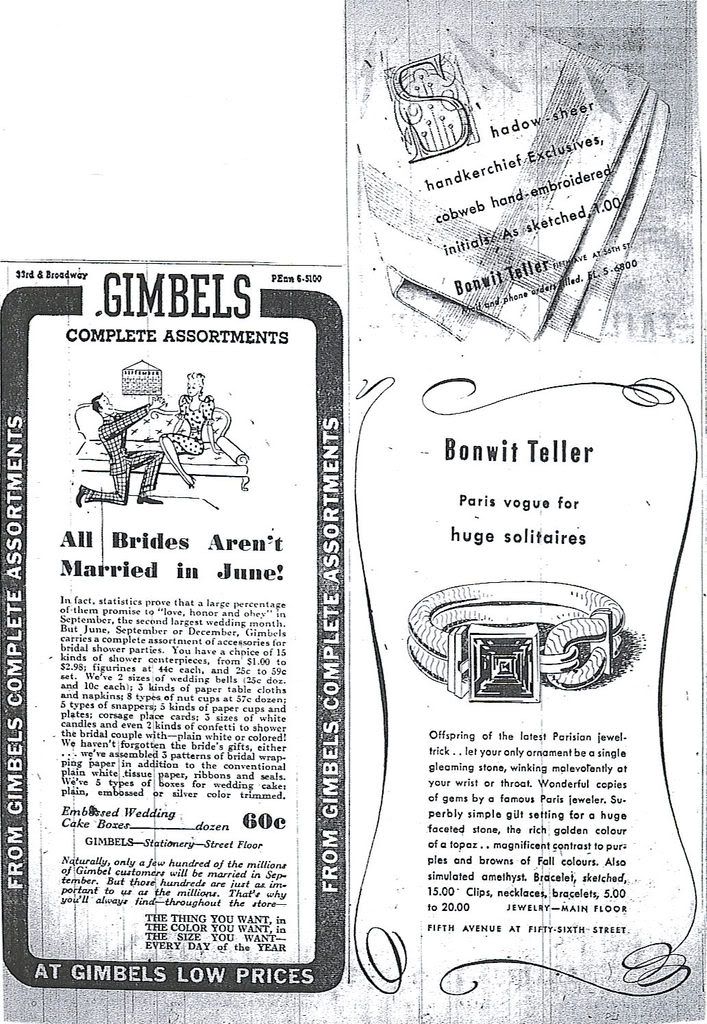
The organization had previously opposed the moves of Premier Edouard Daladier to modify the application of the forty-hour week. The communiqué, however, showed a willingness to favor longer hours in view of the threatening international situation.
The government and the confederation agreed that the workers would “furnish practical suggestions, which may be accepted, rapidly to increase production” for the nation’s fighting forces, the communiqué said.
Pledged to aid Czechoslovakia from foreign attack, France meanwhile dispatched additional reserve troops to her eastern border. Today’s troop movements brought an unofficial estimate that 1,200,000 French soldiers were under arms or standing by for orders from the Premier.
It is thought possible here that today’s move may be a diplomatic breakdown to enable the Sudetens to postpone their last proposals until after they have heard what Chancellor Adolf Hitler has to say in his final declaration at Nuremberg. It is believed that Viscount Runciman’s mission has not yet played its last cards and for that reason the situation , bad as it might seem, is being viewed in Paris with comparative calm.
At any rate, the Quai d’Orsay is not taking a position until it has heard the attitudes of the Czechs, of London and of Berlin on the subject.
Meanwhile France went on with measures intended to put the country in a position to meet eventualities as they come. There were heavy departures of troops of reservists from Paris today, mainly those who were bringing up the complement of technicians needed to man and operate the Maginot Line defenses to full strength.
There is not the slightest indication of any general public excitement in Paris nor anything to show that the precautions being taken
than giving the public the assurance that the French Government will not be caught unaware.
Reports reaching here indicate troop movements in the African colonies as well. It is reported that colonial troops have been moved toward the frontiers of Spanish Morocco and that troops stationed in Sough Algeria are being moved to the Coast.
At 2 P. M. tomorrow dock workers of French nationality in the port of Marseille will be called into military service as the result of government orders to break the dockers’ strike.
This is the first move of this kind to be made by the French Government since Aristide Briand, before the war, mobilized the railroad men to break up a French railroad strike.
There is till some doubt as to how the order placing Marseille under military control will work out. French workers indicated tonight that they would accept the government’s orders.
Under present plans the Ministry of Public Works will take over the operating of the docks tomorrow and progressively extend its control to other services in the port. The men will receive pay and work hours under the government’s compromise plan, which the dockers rejected at their final meeting yesterday.
The situation is complicated by the fact that only 2,500 of the 7,000 dockers are French. Foreigners do not come under the order and will be hired by the Public Works Ministry under a non-union system. To them will be offered the same conditions as to the French, who will be on military status.
Rosbruck, on the French-German Frontier, Sept. 7 (AP).-French and German Armies on opposite sides of the border moved reinforcements and supplies up from the rear today while frontier populations anxiously watched every development in the Czechoslovak crisis.
Trains carrying reservists of French classes that finished their regular period of military service in 1934, 1935 and 1936 dropped a few officers at Nancy and Metz, but the reservists went directly to stations “somewhere on the Maginot line” and immediately exchanged civilian clothes for uniforms.
Rosbruck is a little town of several hundred inhabitants split in the middle by the frontier, which is marked by a high wire fence. The only passage through it is at the customs house.
Rosbruck townfolk habitually gather along the fence in the evenings to chat. Tonight, however, when friends met, guards on the German side stood near by and listened to the conversations., They explained apologetically to the townsfolk that they were acting under “orders.”
But – despite increased German border control, reports concerning German military activity leaked into France.
One report that gained credence in French military quarters was that a German Army corps of 25,000 men had moved into fortifications along the frontier near the French town of Lauterbourg.
Frontier populations, however, retained their outward calm. Trains going south carried more passengers than usual, but most of them were wives and children of officers and men regularly stationed in the Maginot zone.
The front page was dominated by the Czech crisis. This post has several of the stories and shows their continuation in the middle pages. The titles of the front page articles are:
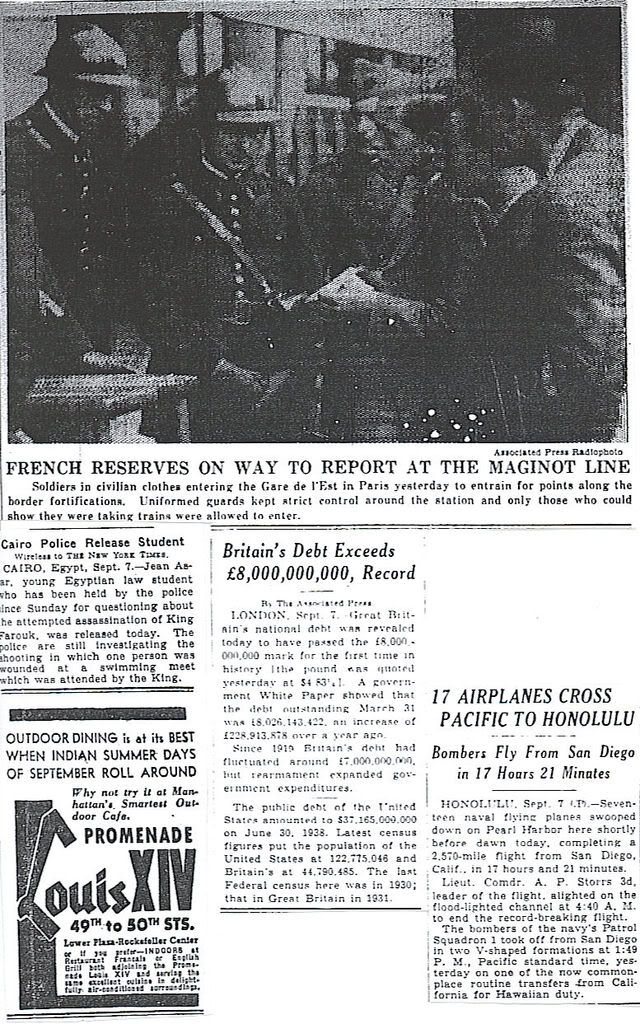
More than 600,000 soldiers are lined up on the Franco-German border. The two great defense systems, the Maginot and the Siegfried lines, are in sight of one another, or would be if anything could be seen except a few barbed wire barricades and a handful of sentries guarding pillboxes. On the surface nothing else appears. The incoming troops are dropped off at hamlets along the line and disappear. The earth opens to swallow carloads of supplies. In the drama moving toward climax in Europe, the strangest scene is that presented by these buried military cities in which 600,000 men live underground, surrounded by all the latest improvements of war and peace.
The invisible armies are both on the defensive, a pretty sure omen that the battle is not intended to be fought in this zone. Actually, however, the encampments underline the primary front, and not only in a literal sense. Behind the German line Hitler broods, calculates and hesitates; his eyes are on France, and if he follows the same logic that has governed his previous coups, then what goes on behind the French line is the decisive factor in the judgment he is making. Every one of Hitler’s major moves, from the proclamation of conscription to the occupation of Austria, has been consummated during a political crisis in France. His actions have been predicated and his successes won on the weakness of the French Government and the internal divisions among the French people.
That is why the world watches with deep anxiety the developments in France. At a time when catastrophe hangs over Europe like the sword of Damocles, it is not too much to say that the chief element in that suspense is not Hitler. His decision, now as in March, is most likely to turn on the internal situation of France. In the final showdown Great Britain, too, will act according to her estimate of French national unity. If the British shrink from making commitments in partnership with France, it is clear that without France they could make none.
France holds the key. Daladier’s decision to abrogate the forty-hour week and to keep open the vital gateway to the French North Africa by mobilizing under military discipline the striking dockworkers of Marseille was a heroic decision for the head of a Leftist government. It proved the urgency of the need for increased production and the deadly seriousness of the labor problem. Today it looks as if the Government’s bold move has awakened the labor leaders to the danger to France of an enemy within the gates. The General Confederation of Labor has retreated from it intransigent attitude and expressed willingness to cooperate in national defense by permitting longer hours in war industries.
As the Czechoslovak situation worsens this is good news. More than ever in these days the Rhine is the frontier of civilization as we know it, and a voluntarily united France, besides being the determining factor in the decisions being made on the other side, stands as the first line of defense for the Western World.
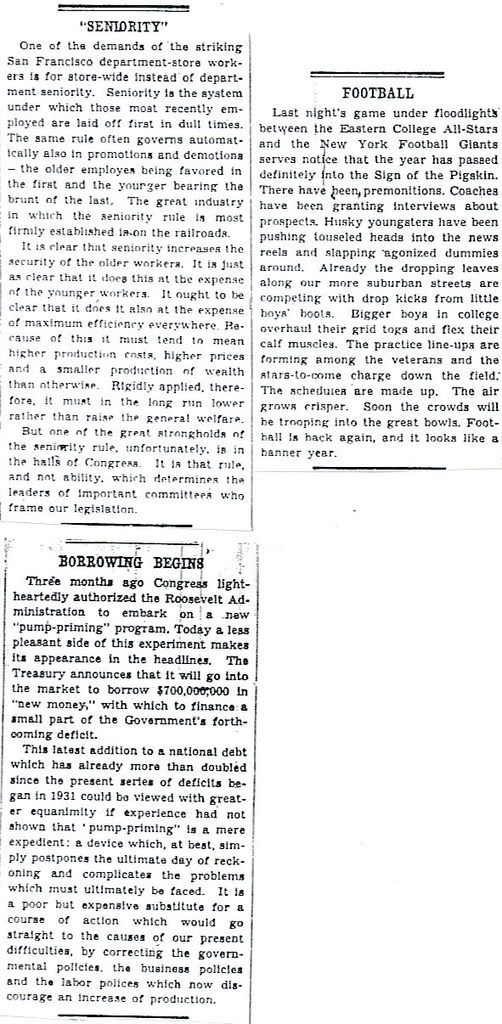
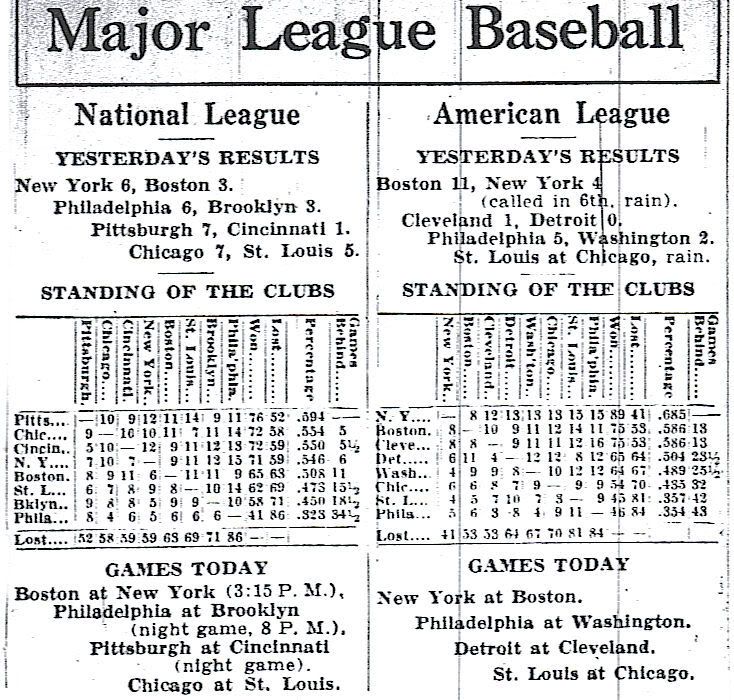
Prague Is Assailed, By G. E. R. Gedye
Communiqués in Prague
Henlein Goe Home, by Frederick T. Birchall
British Wavering; See Climax Near, by Ferdinand Kuhn Jr.
French Labor Aids Premier In Crisis
Those articles are followed by some editorials and the baseball standings at the end.
And if you see BilltheDrill, member since 9/8/98, buy him a drink to celebrate his ten years of pithy commentary here at Free Republic.
That must have been an interesting place to live up to June of 40.
Of course not, the mother wouldn't have been alive to weep.
A lot of parallels between Germany-Czechoslovakia and what is going on today between Russia and Georgia.
Especially from Sept. 1939 on.
One difference: Hitler threatened, Putin sent in the tanks.
Thank you, excellent thread, full of details, some even make me smile.
Check out the last item in this long post. The Cubs are 5 back with about three weeks to go, but they have the Big Mo.
Disclaimer: Opinions posted on Free Republic are those of the individual posters and do not necessarily represent the opinion of Free Republic or its management. All materials posted herein are protected by copyright law and the exemption for fair use of copyrighted works.